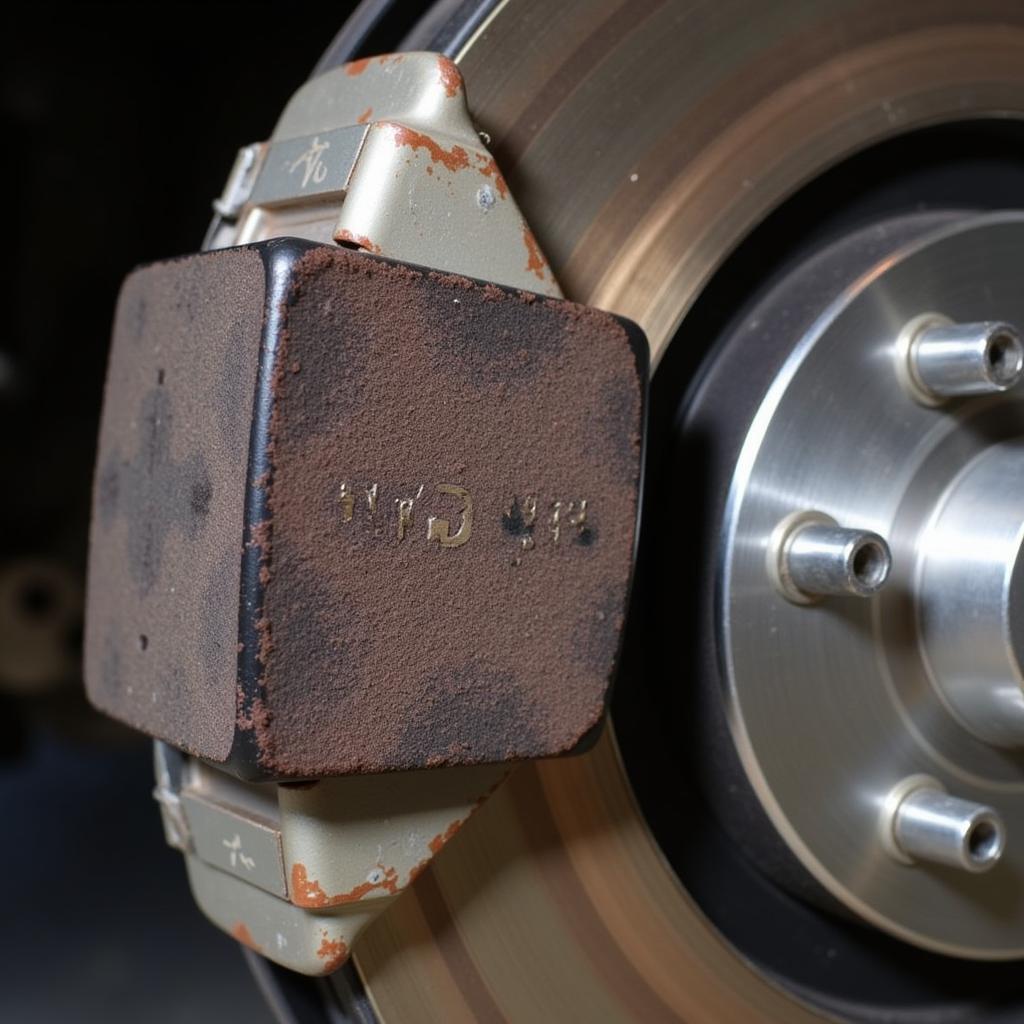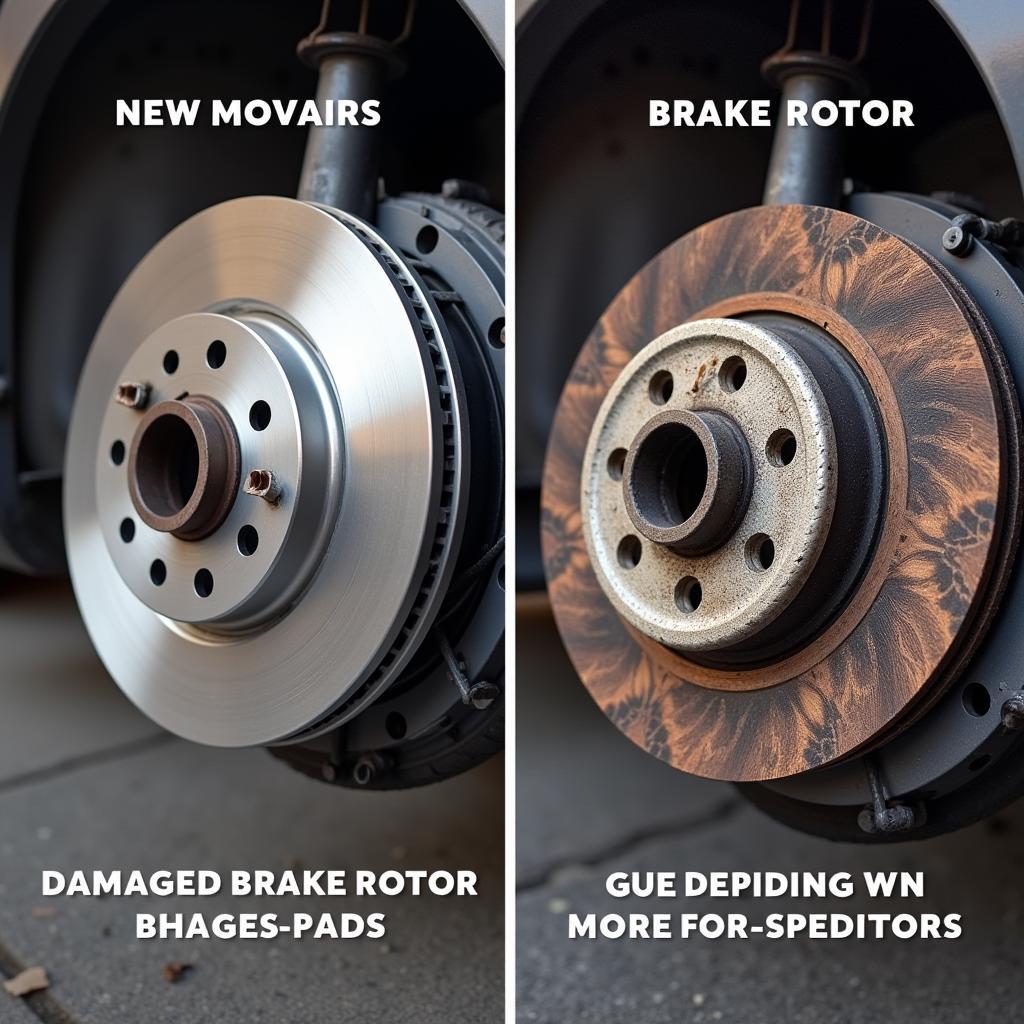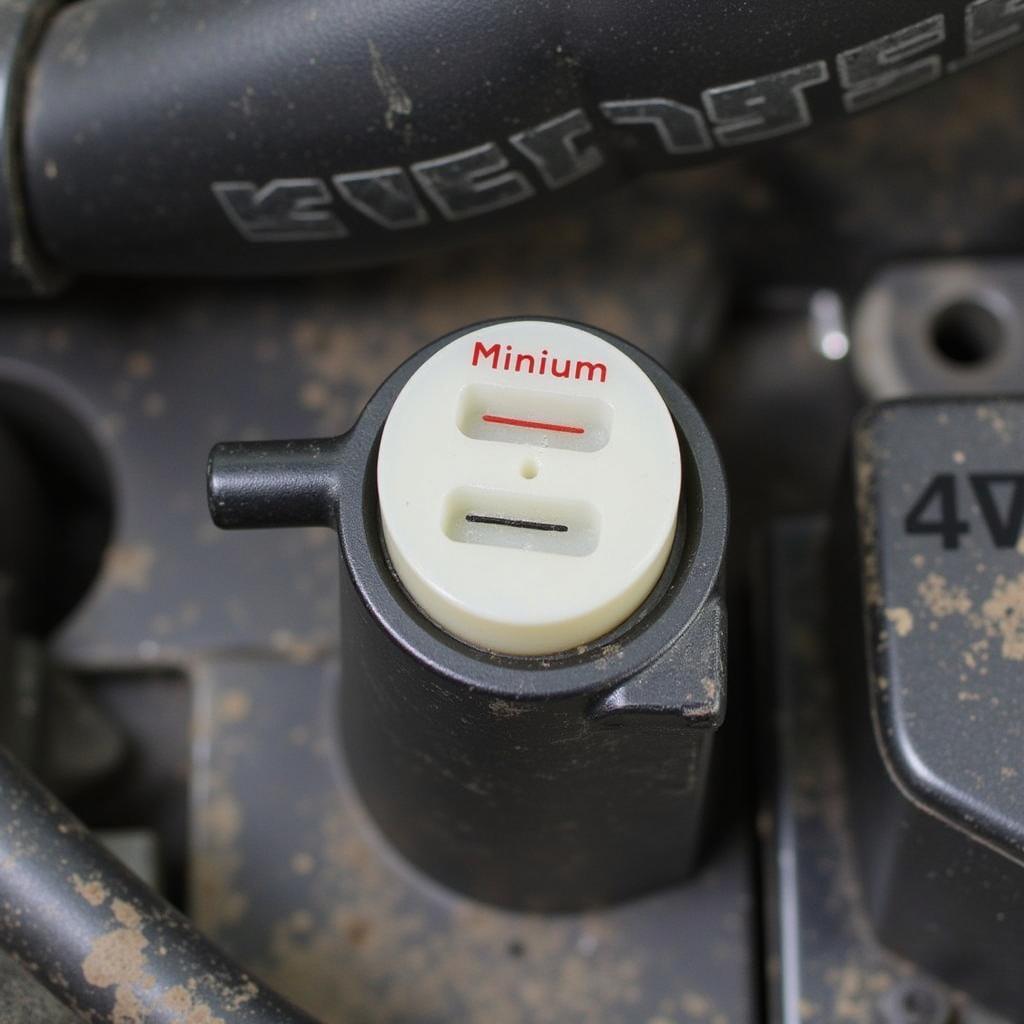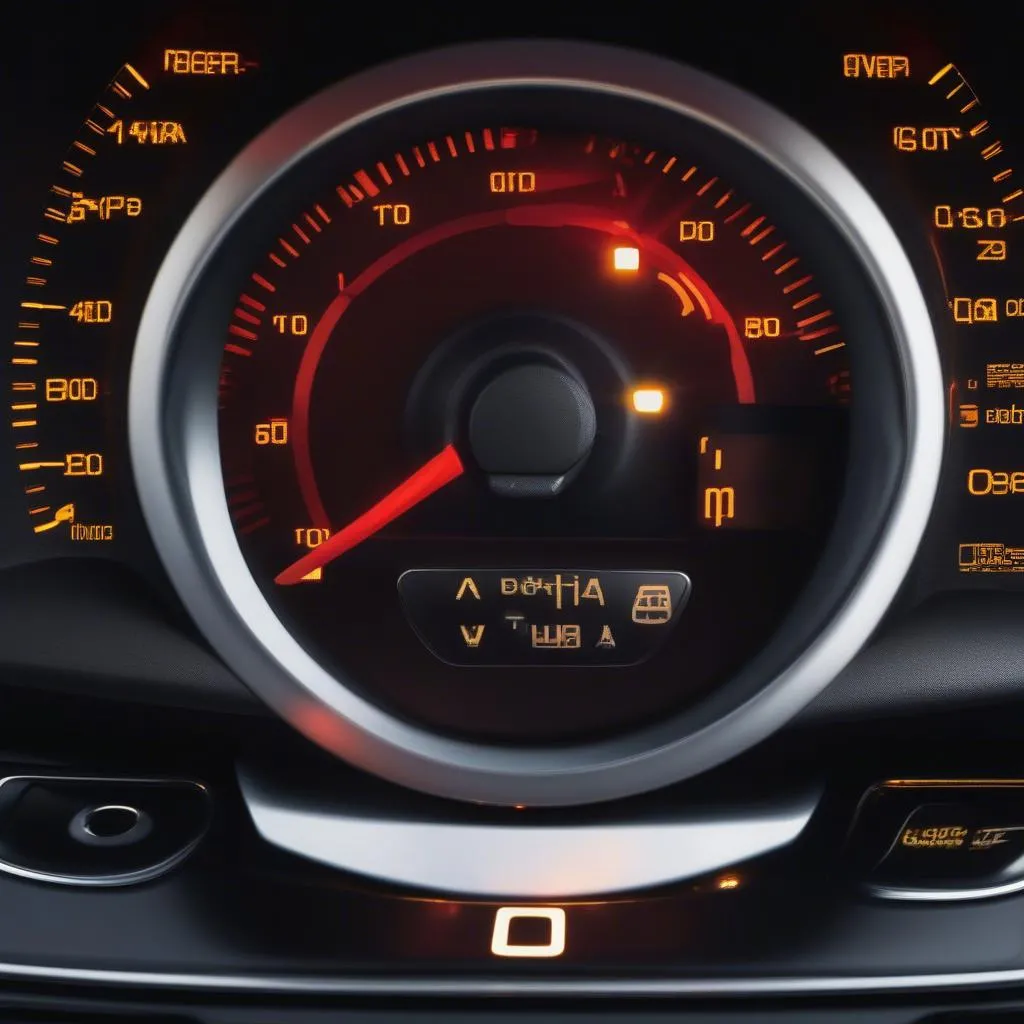That grinding, screeching sound coming from your brakes is not just annoying; it’s a clear warning sign that your brake pads are wearing thin and need immediate attention. Ignoring this “brake pad warning noise” can lead to costly repairs and even dangerous driving situations.
Understanding Brake Pad Warning Noises
Most modern vehicles come equipped with brake pad wear indicators – small metal tabs designed to make contact with your brake rotor when the pad material wears down. This contact creates a high-pitched squealing or scraping sound, alerting you to the need for a brake job.
 Brake Pad Wear Indicator
Brake Pad Wear Indicator
Common Types of Brake Noises and Their Causes
While a high-pitched squeal often signifies worn brake pads, other noises can indicate different brake issues:
- Grinding Noise: A loud, metallic grinding sound usually means your brake pads are completely worn, and the metal backing plate is scraping against the rotor. This requires immediate attention as it can permanently damage your rotors.
- Clicking or Clunking: This could indicate a loose caliper or worn-out brake pad hardware.
- Squeaking or Squealing When Not Braking: This might be caused by worn brake pad shims or a build-up of dirt and debris.
“Different brake noises signal different problems,” says automotive engineer and brake specialist, Sarah Jones. “Identifying the specific sound is crucial for accurate diagnosis and repair.”
Diagnosing the Problem
If you’re unsure about the source of the noise, it’s best to take your car to a qualified mechanic. They can properly diagnose the problem by:
- Visually inspecting the brake pads, rotors, calipers, and other brake components.
- Measuring the thickness of the brake pads.
- Checking for leaks in the brake lines and hoses.
What Happens If You Ignore Brake Pad Warning Noises?
Ignoring brake pad warning noises can lead to:
- Reduced braking performance: Worn brake pads take longer to stop your vehicle.
- Damaged rotors: Driving with worn pads can cause deep grooves in your rotors, requiring costly replacements.
- Brake failure: In extreme cases, ignoring brake problems can lead to complete brake failure, putting you and others at risk.
 Worn Brake Pads and Damaged Rotor
Worn Brake Pads and Damaged Rotor
How to Reset a Brake Pad Warning Light
Some vehicles have a brake pad warning light on the dashboard in addition to or instead of a noise. If the light is on, it’s essential to have your brakes checked immediately. Once the brake pads are replaced, the warning light usually resets automatically. However, some vehicles may require a manual reset procedure. You can find model-specific instructions in your owner’s manual or online. For instance, if you’re experiencing a brake warning light in your Mercedes-Benz W211, you can find a guide on how to perform a W211 brake warning reset online.
Preventing Future Brake Problems
To prevent premature brake pad wear and other brake problems:
- Avoid hard braking: Anticipate stops and coast to a stop whenever possible.
- Lighten your load: Carrying excessive weight puts extra strain on your brakes.
- Use high-quality brake pads: Choose brake pads that are appropriate for your vehicle and driving style.
“Just like any other part of your car, brakes need regular maintenance,” advises Jones. “Routine inspections and timely replacements can save you a lot of trouble and expense in the long run.”
Brake Pad Warning Noise: FAQs
Q: How long can you drive with a brake pad warning noise?
A: It’s best not to drive at all. Get your brakes checked by a mechanic immediately.
Q: Can I replace my brake pads myself?
A: While possible, brake pad replacement requires mechanical knowledge and tools. It’s recommended to have it done by a professional.
Q: How often should I get my brakes checked?
A: Have your brakes inspected at least once a year or every 12,000 miles.
Don’t Ignore the Warning
A brake pad warning noise is a serious safety concern. Addressing the problem promptly ensures your safety and prevents further damage to your vehicle.


